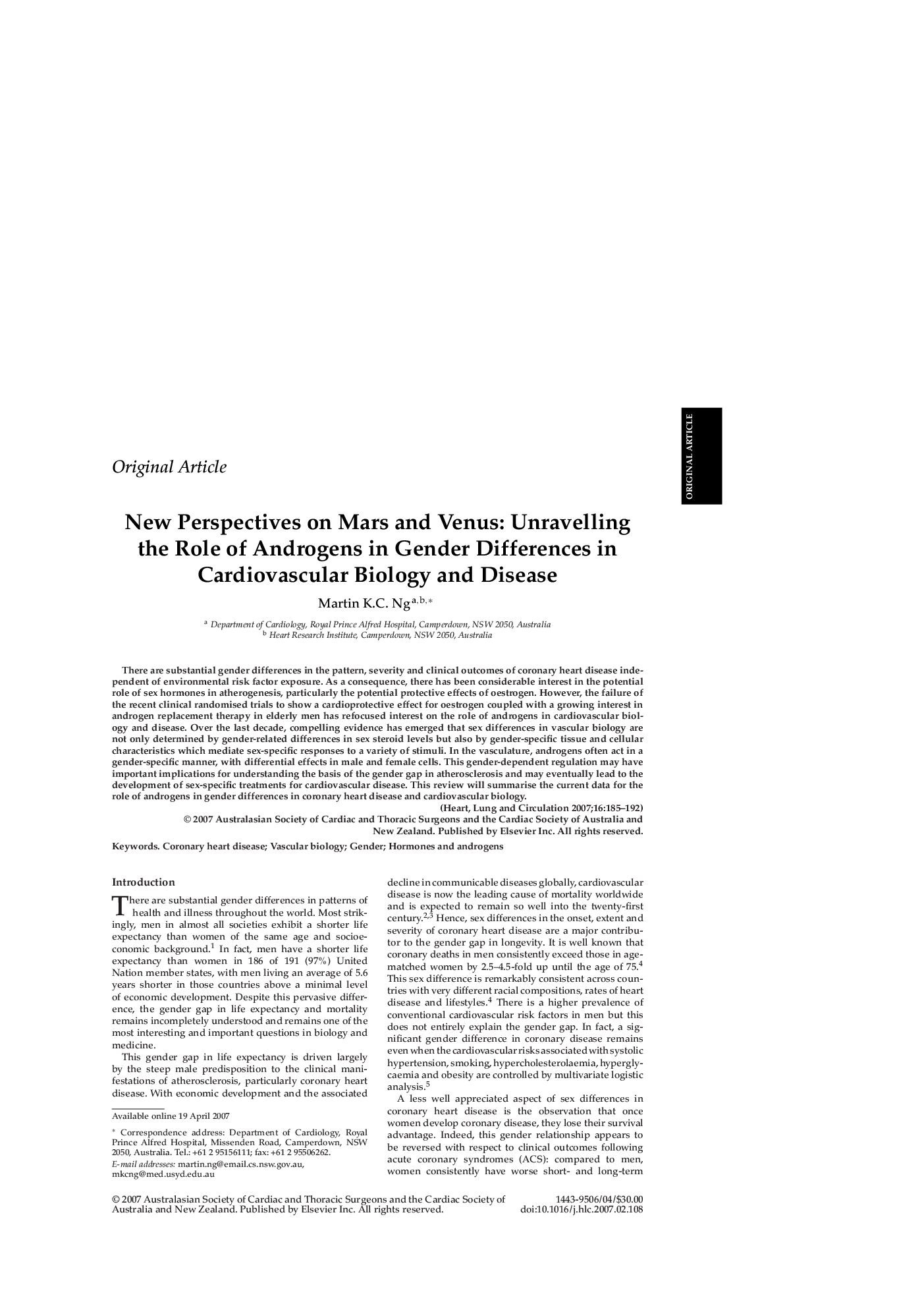| Article ID | Journal | Published Year | Pages | File Type |
|---|---|---|---|---|
| 2920146 | Heart, Lung and Circulation | 2007 | 8 Pages |
There are substantial gender differences in the pattern, severity and clinical outcomes of coronary heart disease independent of environmental risk factor exposure. As a consequence, there has been considerable interest in the potential role of sex hormones in atherogenesis, particularly the potential protective effects of oestrogen. However, the failure of the recent clinical randomised trials to show a cardioprotective effect for oestrogen coupled with a growing interest in androgen replacement therapy in elderly men has refocused interest on the role of androgens in cardiovascular biology and disease. Over the last decade, compelling evidence has emerged that sex differences in vascular biology are not only determined by gender-related differences in sex steroid levels but also by gender-specific tissue and cellular characteristics which mediate sex-specific responses to a variety of stimuli. In the vasculature, androgens often act in a gender-specific manner, with differential effects in male and female cells. This gender-dependent regulation may have important implications for understanding the basis of the gender gap in atherosclerosis and may eventually lead to the development of sex-specific treatments for cardiovascular disease. This review will summarise the current data for the role of androgens in gender differences in coronary heart disease and cardiovascular biology.
